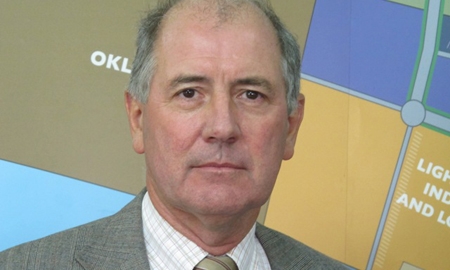Situated 100km from Lagos, The OK Free Trade Zone (OKFTZ) in Nigeria will serve as a prime location for investors wanting to set up business in a country whose economy grew by a robust 7.6% last year. The construction of a deep sea port along the OKFTZ, the first of its kind in Africa, will offer a gateway to Europe, Asia, and the United States, and road connections will allow easy access to Lagos and beyond. The OKFTZ is also located close to future offshore oil exploration blocks, making it a hotspot for petroleum-related businesses.
According to Mr. Luk Haelterman, Managing Director of the OKFTZ, there are 27 Free Trade Zones (FTZs) in Nigeria. Currently only 7 or 8 are active. But rather than developing others, he believes that FTZ managers and the government should work to ensure that the existing active FTZs are properly developed. It will require a lot of work and investment to “get them working.” The two primary needs are access and power, both of which are lacking in the majority of FTZs in Nigeria.
Nevertheless, the OKFTZ already has one “decent” road running into the zone to cater for its first multi-hundred million dollar project, which will see the construction of a single point mooring, allowing easy access for tankers, as well as a large “tank farm” or oil depot. Mr. Haelterman assures that the project will create a huge level of employment in the area. This first project is expected to be followed by many others.
The OKFTZ Managing Director goes on to explain that Nigerian FTZs have a competitive advantage on account of the abundance of minerals and base materials that “are available to a heavy extent.” Due to the OKFTZ’s close proximity to the new oil fields, he expects it to attract a lot of oil-related business, but the other primary objective is to draw numerous other industries to Nigeria’s FTZs also.
Nigeria’s impressive 7.6% growth has really been on the back of oil and gas revenues. “But our objective is certainly a lot larger,” he adds. “Once your economy starts to grow and you really attract investment, then you also start to fit new industries. We believe that this certainly is a possibility for many of the FTZs [in Nigeria].” Aside from petroleum-related business, other permissible industries in the OKFTZ include electrical, textile, pharmaceutical, shipbuilding, as well as rubber, plastic and wood, to name but a few.
Mr. Haelterman believes the best way to secure Nigeria’s economic future is through FTZs. “Creating FTZs in Nigeria is very positive. It is the way to industrialization, which leads to employment, better skilled jobs and the rise of the middle class. It will require cooperation between the government, states, and FTZ managers. I think we have a huge market before us with huge potential. With the necessary stubbornness and perseverance, we will reach a far better economic and social level than Nigeria has had for the past two decades.”

0 COMMENTS